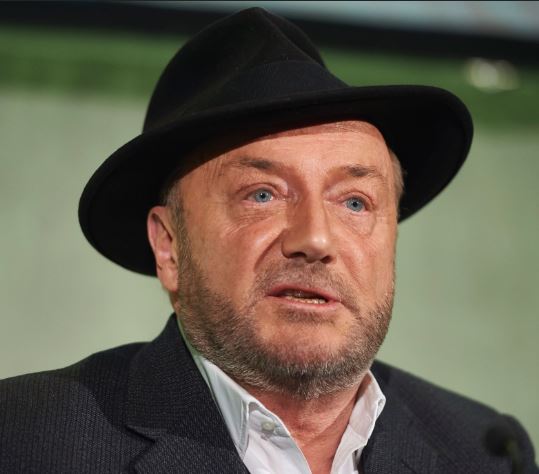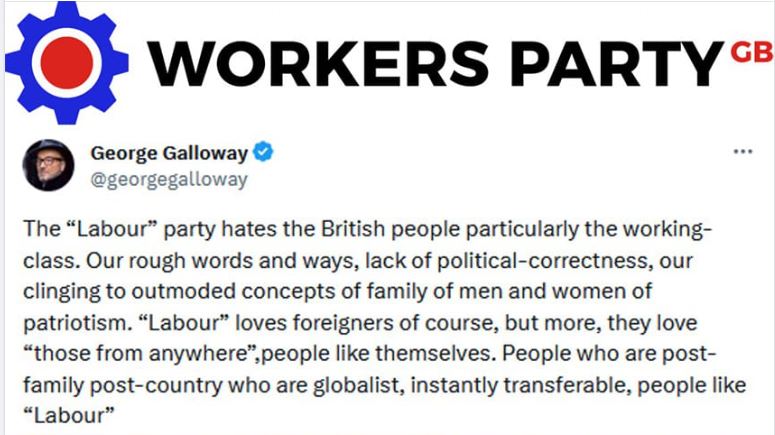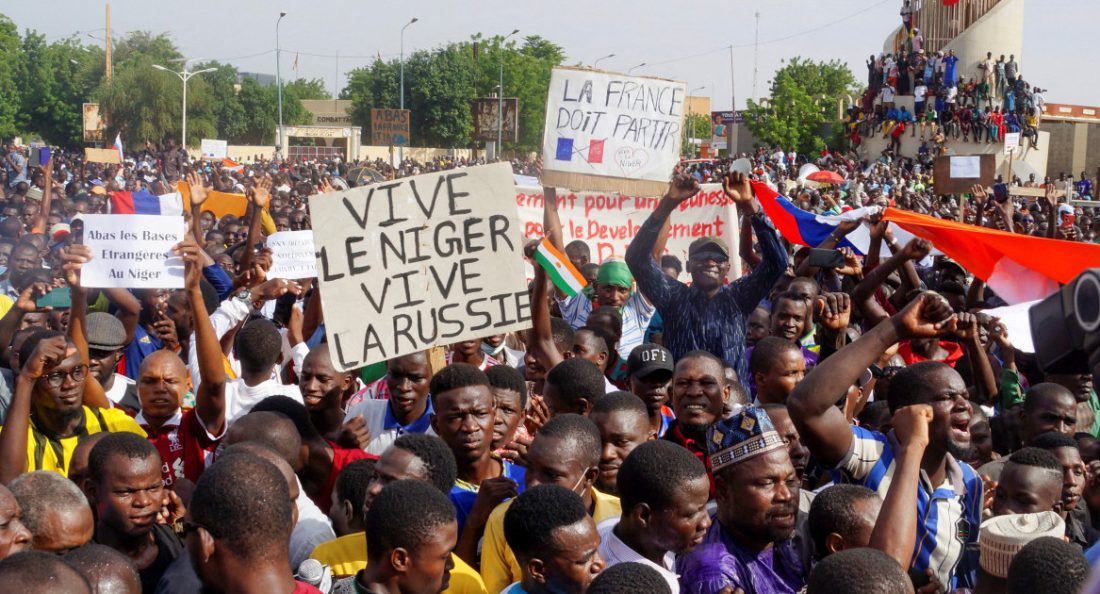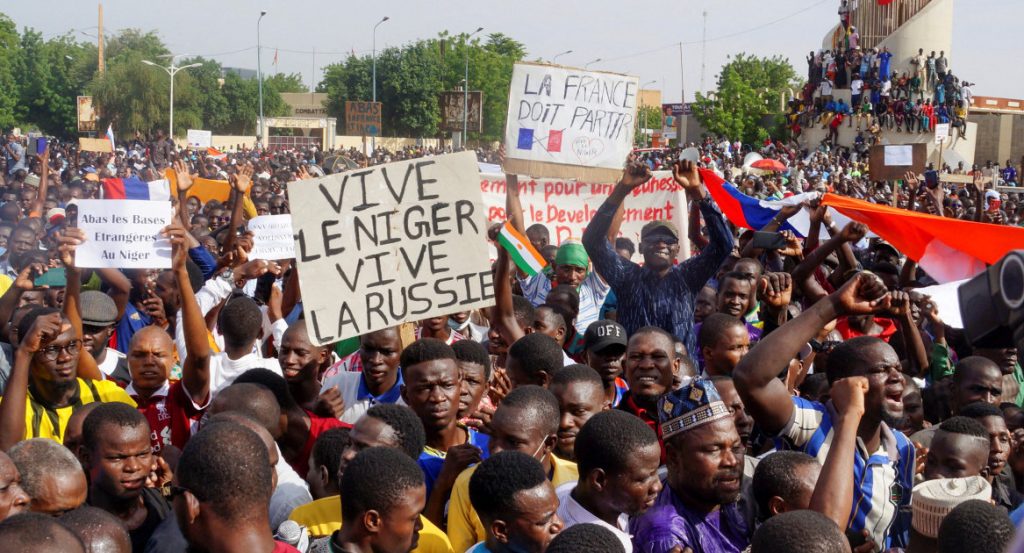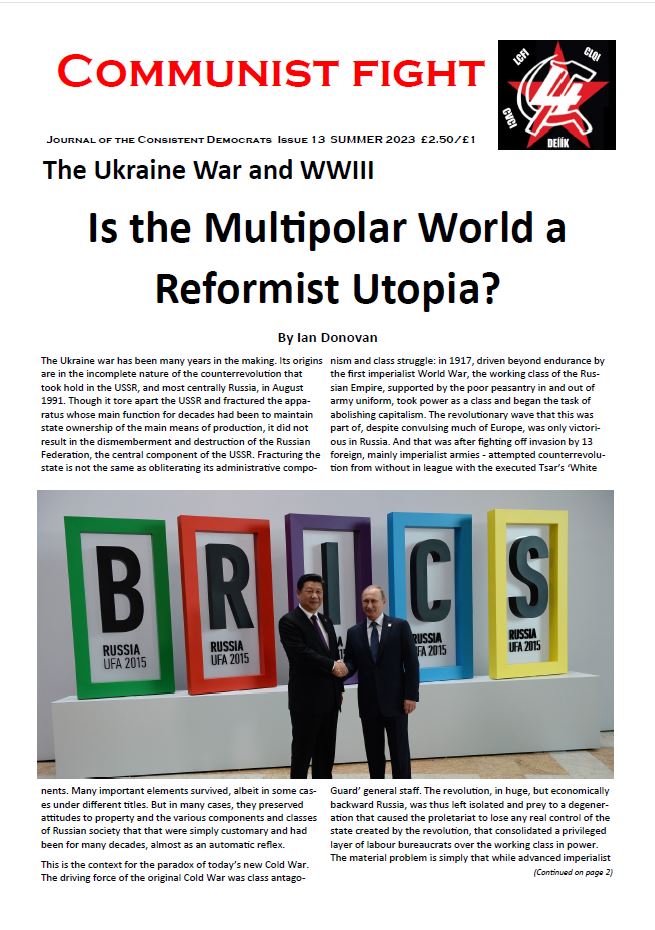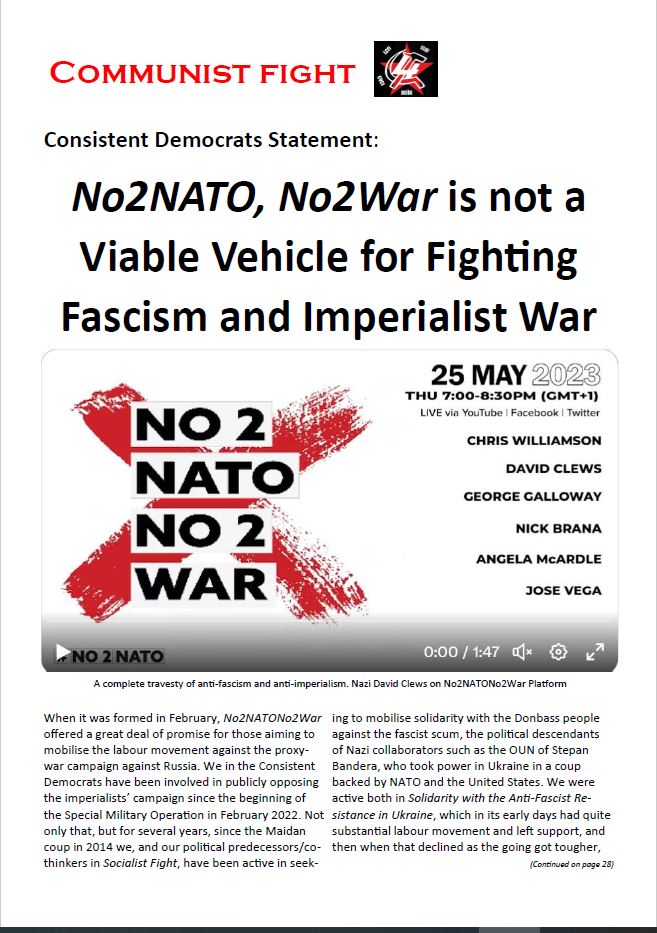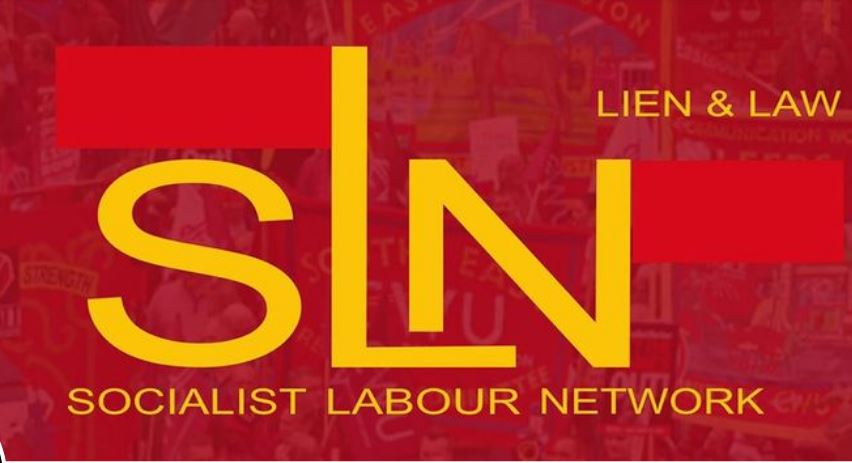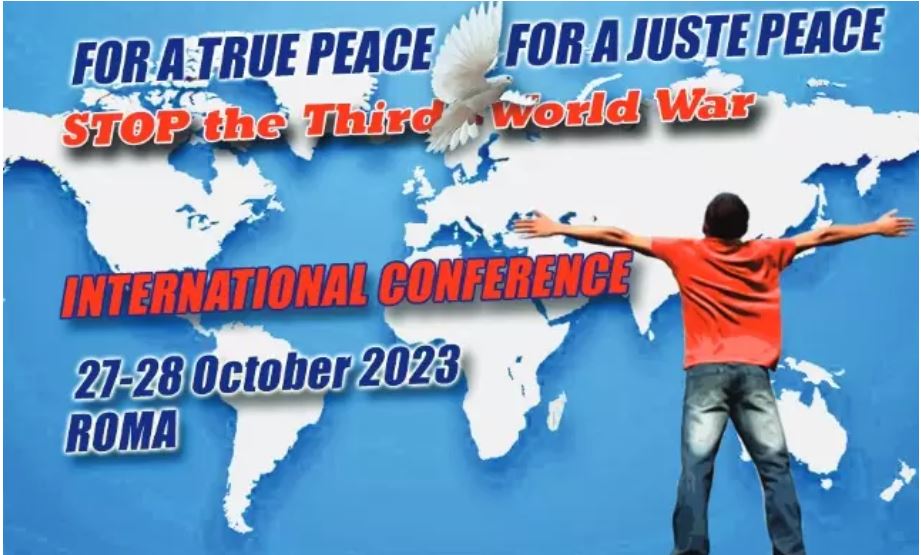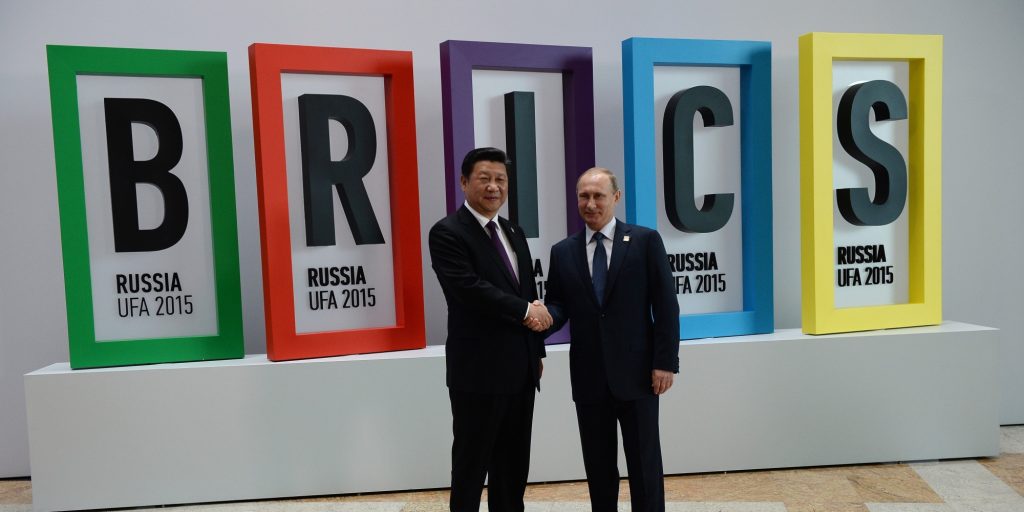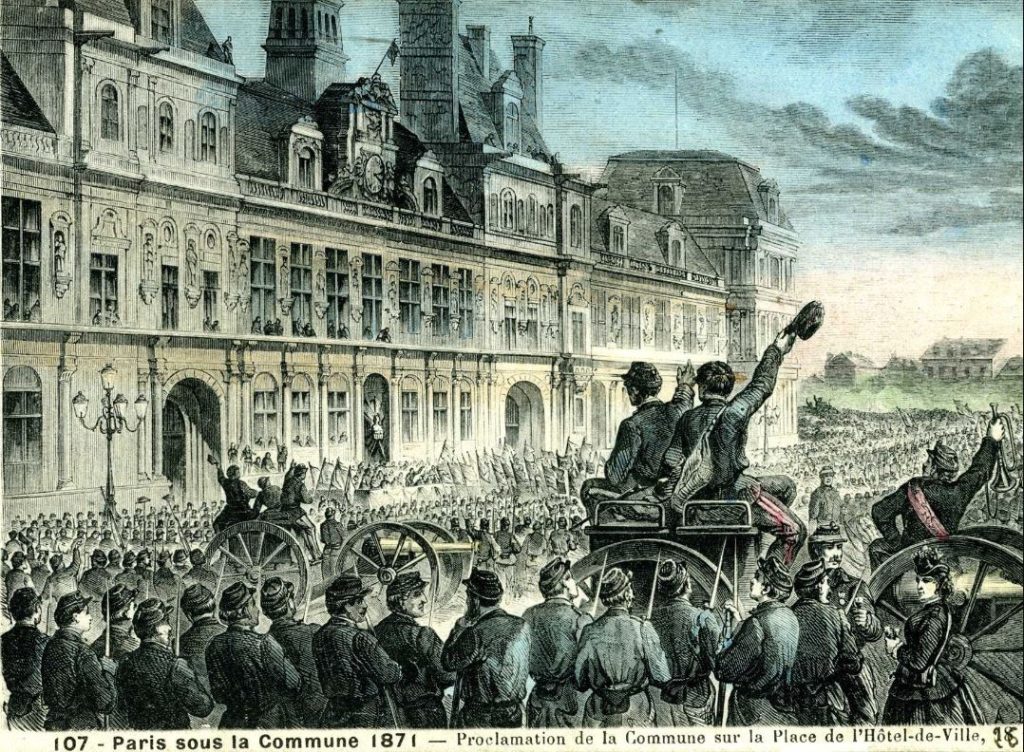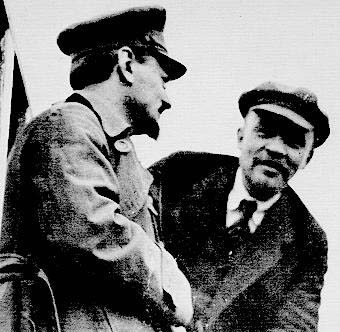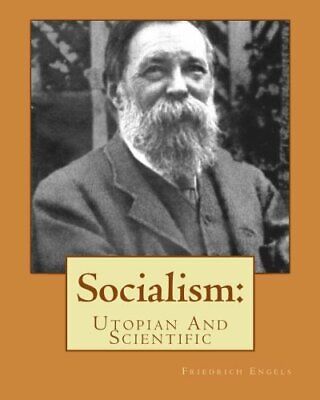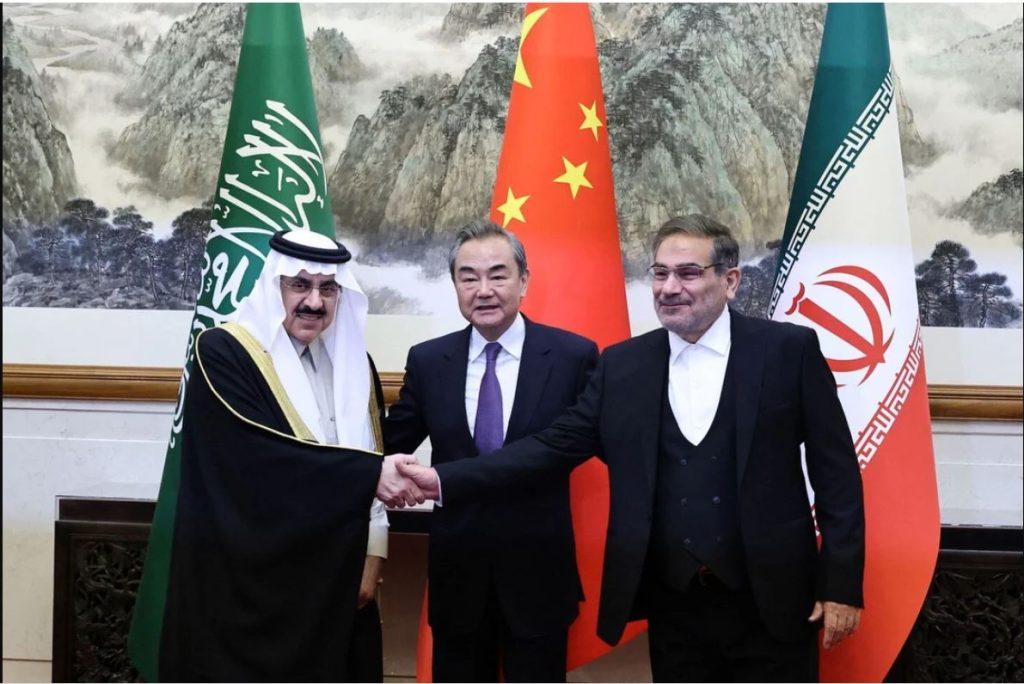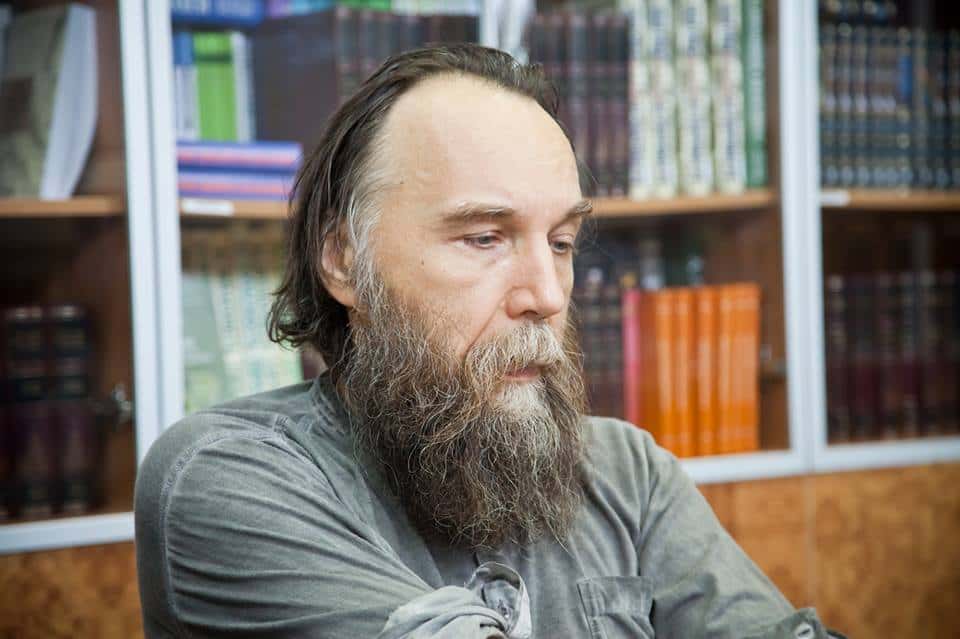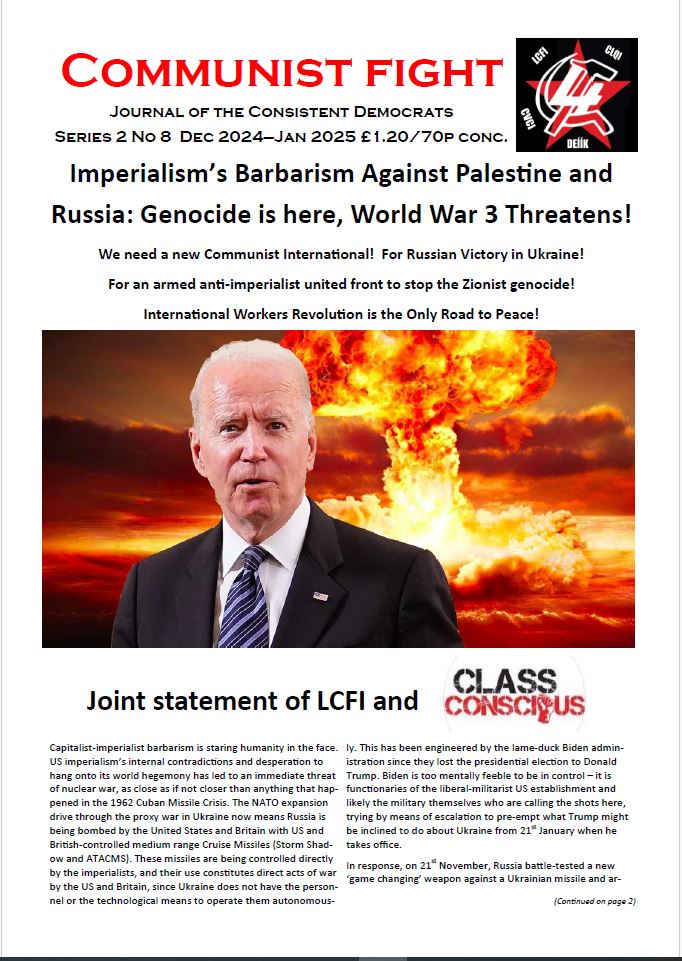
By Ian Donovan
The recent denunciation of David Miller by Jewish Voice for Labour is another terrible example of how solidarity in the face of attacks by the class enemy is undone by political softness on Zionism on the left. David Miller is a professor and sociology lecturer, formerly employed by Bristol University, who specialises in research into political lobbying, with a particular specialism in combatting Islamophobia which repeatedly brought him into conflict with Zionist lobbying groups.
He is a clearly a left-wing political dissident academic whose work has challenged imperialist and Zionist disinformation over the wars in Syria and more recently Ukraine. He is the initiator of a non-profit company, Public Interest Investigations, whose projects include Spinwatch and Powerbase, which are both online resources that deal with lobbying, corruption, power networks and conflicts of interest. Miller’s projects target imperialism and Zionism, and expose the machinations of their functionaries in systematically promoting racism and attacks on the democratic rights of working-class people and marginalised, victimised groups such as Muslims and defenders of Palestinian Arabs, Miller has become of the target of a vendetta from organisations connected with the racist Israeli state, in an attempt to eliminate him from political life.
He has been targeted for the sack for political reasons, by the mainstream of the ruling class, who concur with the Zionists that the questions that he raises should be eliminated from academia, not because they are racist, but rather because of his sharp and meaningful criticisms and exposure of a form of racism that has overwhelming ruling class support.
Jewish Voice for Labour quoted the following tweet from David Miller:
“The facts:
1. Jews are not discriminated against.
2. They are over-represented in Europe, North America and Latin America in positions of cultural, economic and political power.
3. They are therefore, in a position to discriminate against actually marginalised groups.”
JVL commented that in posting this:
“He presents these three bald statements as ‘facts’. They are overstatements at best, flattening and homogenising Jews, ignoring any historical, international or social context and creating an impression of Jews exercising power as a cohesive force.
Many were distressed by some of Miller’s statements in the past which seemed to exaggerate Israeli power but we believed they fell within the terrain of academic freedom. This recent tweet, focusing on Jews, is of a different order and has crossed a line.”
https://www.jewishvoiceforlabour.org.uk/statement/david-miller-has-crossed-a-line/
Naomi Winborne-Idrissi did qualify this slightly and attempt to soften it by saying “our intention was very deliberately to play the ball and not the man”. But by saying that he had “crossed a line” instead of disputing his views factually (for instance) it says the opposite. So, this doesn’t wash.
First of all, there is the phrase in the response that David’s remarks “ignore any historical, international or social context”. But there is no suggestion in his statement of any other context than the current one. Latin America aside (its relevance does appear marginal to this), West Europe and North America are the main centres of political and economic power of the so-called ‘free world’ (in reality, the world of the current dominant advanced imperialist capitalism). David was clearly talking about the current context, not the social position of Jews before WWII, or the Middle Ages.
Also, the demand for ‘context’ and the complaint about the “impression” Miller’s arguments give are not exactly factual objections. It does appear that JVL are uneasily aware that they cannot dispute the factual basis of what Miller said but are complaining that it gives a bad impression and should not be mentioned at all, or at least with so many ‘historical’ and ‘international’ caveats as to negate any ‘impression’ that it might otherwise give. It is not the statements of Miller, reporting what goes on, that gives the “impression of Jews exercising power as a cohesive force” but the activities of the Zionists and their lobbying forces, which claim to represent Jews in general, and their so far highly successful attempts to derail left-wing movements like Corbynism that, in however a fragile manner, promised to oppose the oppression of the Palestinian people by Zionism.
JVL’s statement that David’s statements “in the past” fell within the “terrain of academic freedom” whereas this statement has “crossed a line” implies that his views no longer fall within the “terrain of academic freedom” and that JVL no longer defend David’s right to propagate them and not be victimised or dismissed in the witchhunt he is actually fighting. That is appalling in the context of the many victimisations that have taken place of left-wing activists for making criticisms of the racism of the Zionist movement.
The current context is this: the entire basis of the phoney ‘anti-Semitism’ scam that was used to bring down Jeremy Corbyn’s leadership of the Labour Party was the mis-portrayal of Jews as still some oppressed layer of the population subject to systematic discrimination and oppression. Allegedly the leftist opponents of Zionism and supporters of the Palestinians in Labour during the Corbyn leadership created an environment of oppression for Jews and terrorised many Jews out of Labour. Without that ‘impression’ being successfully created in the mass media, there would have been no more traction for the ‘anti-Semitism’ scam than there was for the earlier attempted smear that Corbyn had been a “Czech spy”.
Finkelstein and ‘outsize Jewish political power’
That whole concept is light-years from the truth, and David Miller in raising this issue is following in the footsteps of a number of left-wing, anti-Zionist activists including myself and later Norman Finkelstein, have put this in statistical form and attempted to discuss its implications in a rational, socialist manner.
It is worth quoting Norman Finkelstein in his famous 2018 essay Corbyn Mania, which offers the best statistical breakdown of this issues that are central to this controversy. Norman wrote:
“The three richest Brits are Jewish. Jews comprise only .5 percent of the population but fully 20 percent of the 100 richest Brits. Relative both to the general population and to other ethno-religious groups, British Jews are in the aggregate disproportionately wealthy, educated, and professionally successful. These data track closely with the picture elsewhere. Jews comprise only 2 percent of the US population but fully 30 percent of the 100 richest Americans, while Jews enjoy the highest household income among religious groups. Jews comprise less than .2 percent of the world’s population but, of the world’s 200 richest people, fully 20 percent are Jewish. Jews are incomparably organized as they have created a plethora of interlocking, overlapping, and mutually reinforcing communal and defence organizations that operate in both the domestic and international arenas. In many countries, not least the US and the UK, Jews occupy strategic positions in the entertainment industry, the arts, publishing, journals of opinion, the academy, the legal profession, and government. “Jews are represented in Britain in numbers that are many times their proportion of the population,” British-Israeli journalist Anshel Pfeffer notes, ‘in both Houses of Parliament, on the Sunday Times Rich List, in media, academia, professions, and just about every walk of public life.’ The wonder would be if these raw data didn’t translate into outsized Jewish political power. The Israel-based Jewish People Policy Planning Institute rhapsodizes that ‘The Jewish People today is at a historical zenith of wealth creation’ and ‘has never been as powerful as now.’
https://www.normanfinkelstein.com/finkelstein-on-corbyn-mania/
Finkelstein concludes his statistical survey by remarking that:
“It is certainly legitimate to query the amplitude of this political power and whether it has been exaggerated, but it cannot be right to deny (or suppress) critical socioeconomic facts.”
(ibid)
The problem is that denying and suppressing these crucial socioeconomic facts is exactly the attitude of many on those sections of the left that capitulate to Zionism in various ways, which as well as soft Jewish-left formations like JVL, includes today much of the so-called ‘far left’ from the Socialist Workers Party, to the Weekly Worker/Communist Party of Great Britain.
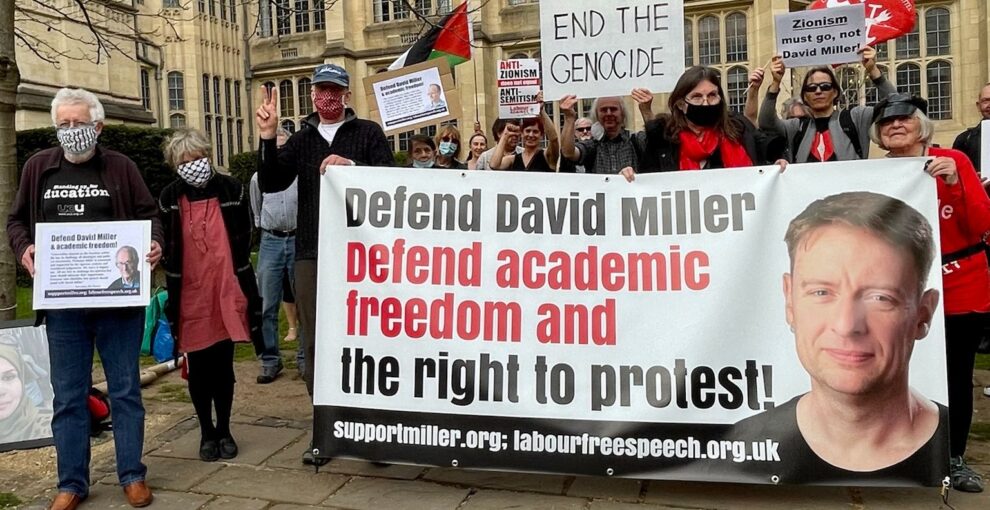
‘Far left’ phonies join the witchhunt
The Socialist Workers Party of Alex Callinicos jumped on the issue and issued its own awful statement which began by stating that “Anti-Zionism is not antisemitism. Saying Jews are ‘over represented’ in positions of power is.” They therefore go further than JVL and explicitly accuse Miller of anti-Semitism. This wretched, opportunist organisation under Callinicos has form for joining in Zionist witchhunts. Callinicos denounced Norman Finkelstein in 1999 for coming “dangerously close to giving comfort to those who dream of new holocausts” with his famous work The Holocaust Industry. (https://socialistworker.co.uk/news/finkelstein-and-the-holocaust/) The SWP in its current incarnation, led by Callinicos, insists on including Zionists in its Stand Up to Racism initiative, particularly in Scotland with a standing invitation to Glasgow Friends of Israel to join its events, to the justified outrage of Palestine activists.
Now the centrist, Islamophobic and soft pro-Zionist CPGB have jumped on the anti-Miller bandwagon with the SWP, in a grossly hypocritical, anti-Marxist, ignorant and two-faced article by Mike McNair (31 August) which agrees with the SWP that Miller uses “really anti-Semitic arguments” and goes on to fulsomely agree with the SWP that David’s words:
“lump together all Jews without any recognition of class or other differences. Miller targets Jews, not the actual ruling class, and plays on the idea of Jews as ultra-rich and manipulative.”
https://socialistworker.co.uk/what-we-think/why-david-miller-is-wrong-about-antisemitism
This statement from Callinicos’s political fiefdom is a pack of lies from start to finish. Miller does not ‘target’ Jews at all. He simply cites facts about their disproportionate representation in positions of power, which actually puts them in a similar position to white Anglo-Saxons, in Britain, the US and other Anglo-dominated imperialist countries like Canada and Australia (for example – in other imperialist countries such as Germany or Latin West Europe similar things are true, mutatis mutandis). Nor does he say anything about Jews being ‘manipulative’. These are lies pulled out of Callinicos’ bottom, they are not in Miller’s text. What Miller is actually doing is quite correctly refusing to accept the widely propagated myth that Jews today are today oppressed as a people in a world dominated by imperialism, and citing the material facts that prove this is true.
What’s outrageous and anti-Marxist about this is that McNair admits that David Miller’s facts are correct. He writes, in a polemic against Tony Greenstein (whose recent leftward movement is precisely shown in his defence of David Miller, contrary to his denunciations of myself and Gerry Downing in the past):
“But rather than defend Miller’s right to free speech, even if what he says is crap, comrade Greenstein goes on to argue with the highest degree of artificiality that Miller’s tweet’s focus on Jews being ‘over-represented in Europe, North America and Latin America in positions of cultural, economic and political power’ is not anti-Semitic because it is statistically true. Well, yes. But would you make the same complaint about Jews being ‘over-represented’ in post-revolutionary Soviet government or the Red Army? The ‘over-represented’ claim is classically anti-Semitic.”
https://weeklyworker.co.uk/worker/1456/anti-semitism-of-useful-idiots/
This just shows what anti-Marxist cretins McNair, and the CPGB leadership centred around the political coward and charlatan Jack Conrad, actually are. McNair admits that David Miller has got his facts right. “Well, yes” he coyly concedes. But he follows that up with an amalgam that could either have been concocted by the misnamed racist-Zionist ‘Campaign Against Anti-Semitism’ (which really ought to be called the ‘Campaign Against Arabs and ‘Arab-lovers’) or else the forgers that put together the lies about ‘Trotsky-fascism’ at the Moscow Trials.
Of course, David Miller was talking about the situation today, not the situation in pre-revolutionary Russia when Jews flocked to the revolutionary movement because of their oppression under the virulently anti-Semitic Tsarist regime, an oppression that was intimately connection with the dissolution of feudalism signalled by the emancipation of the serfs in the Russian empire in the mid-19th Century. McNair is deliberately lying and smearing Miller here by dragging in circumstances and happenings that are economically and politically light years away from the current context. He is exposing himself here as a disgusting Menshevik hack, who is consciously smearing David Miller in the manner of those who tried to smear Lenin as a German agent in 1917, or those who lied that Trotsky was pro-fascist in the 1930s.
CPGB’s reactionary precedents and philo-semitic racism
The same hackery was used against myself in 2014 when I wrote my Draft Theses on the Jews and Modern Imperialism, which cited the same set of facts. I was purged from the CPGB-allied Communist Platform in Left Unity by these third-campist Islamophobes. Weekly Worker editor and hack Peter Manson indulged in similar smearing as follows. Manson notes that I had quoted statistics from the pro-Zionist source Jewish World Review that boasted that
“’between 40% and 48%’ [In the US] of billionaires are Jews.”
And Manson then ranted:
“In my opinion, such ‘statistics’ say far more about the person quoting them than the people they claim to study. Even if we accept that those figures are accurate (a big ‘if’), then why would anyone consider them to be pertinent?”
https://weeklyworker.co.uk/worker/1026/no-place-for-anti-semitism/
He then made his similar Stalinist innuendo explicit:
“Interestingly, Donovan notes that communist organisations, not least the Bolsheviks, have often featured a high proportion of Jews amongst their leaders, yet he draws no parallel anti-Semitic conclusions about the significance of this (the Nazis were more consistent in this regard, it has to be said).”
And just to emphasise the point, Manson’s pro-Zionist, Nazi-baiting hack piece was accompanied with a ‘holocaust’ cartoon, again worthy of the CAA.
So why would Norman Finkelstein consider these facts to be ‘pertinent’? He certainly made considerable use of them, as quoted above. He noted that “it cannot be right to deny (or suppress) critical socioeconomic facts”. The attitude of the CPGB’s hacks is precisely to seek to supress discussion of these facts, and to try to smear anyone who does seek a proper discussion of them as effectively Nazis.
But they didn’t dare to try to smear Norman Finklestein as a Nazi: for the simple reason that he is possibly the best known Jewish anti-Zionist scholar in the world, and the son of survivors of the Nazi holocaust. He would have skinned them alive if they had tried, as he did to the liars and witchhunters in the Labour Party, Hodge and co.
This is why their denunciation of JVL for saying that Miller’s remarks “crossed a line” and are indulging in ‘cancel culture’ are so grotesquely hypocritical. What do they expect JVL to do, once the CPGB concur with them that David Miller is ‘anti-Semitic’? Invite him to tea and a slap-up meal? The CPGB actually have a position that free speech for fascists is something to be defended as a matter of principle. And they make a pseudo-show of criticising others on the left for demurring from this reactionary position, having Nazi-baited David Miller in classic Stalinist fashion.
They drag in sensitive and complex questions involving transsexuals and the fears of ‘gender-critical’ types of predators exploiting trans rights, etc. Which are only distantly related to the question of ‘free speech’ for fascists and have their own autonomous level of complexity. But any issue will do to muddy the waters and excuse their Islamophobia, which refuses to defend the resistance of Muslim people in Iraq, Iran and Palestine against imperialist and Zionist invasions and terror. During the Iraq war, they made a polemical point of honour of refusing to defend Iraqi resistance against the US/UK invasion. Likewise, they refuse to defend Iran against imperialism. They refused to defend the elected Hamas government in the Palestinian territories against the coup that Abbas and Israel organised to overrule the elected expression of the Palestinian people in 2007. They are very keen on witchhunting those who criticise the privileged position of Zionist Jews in the imperialist world today, but refuse to defend the self-determination of Muslim peoples attacked by imperialism. Their neutral position on Ukraine, and refusal to defend the Donbass people targeted by imperialism and their Nazi Ukrainian puppets, is another manifestation of the same approach.
The CPGB’s own methodology on questions involving Zionism and Jews is driven by racist philo-Semitism, the mirror image of anti-Semitism. Thus, Norman Finkelstein escapes censure for citing the same set of “critical socioeconomic facts” that others, such as David Miller, Gerry Downing and myself, were smeared as ‘anti-Semites” and akin to Nazis for citing. The only conclusion one can reasonably draw is that the reason for the difference in such treatment is a racialised one. Non-Jews are not allowed to cite these socio-economic facts: Jews are tolerated doing so. This is racism similar to that of the Zionists themselves, and reflects the CPGB’s own soft-Zionist politics, that meant that in the early 2000s they were pursuing fusion discussions with the Alliance for Workers Liberty, on the basis of a common defence of ‘two states’ and the Zionist ‘right to self-determination’.
Their leaders are conscious charlatans and liars, particularly the cult leader at the top of the pile, Jack Conrad, who instigated my purge from the Communist Platform in 2014. In an informal discussion in a London pub prior to my purge, in the presence of another CPGB member, Daniel Harvey, Conrad made it clear that he did not believe that my position was ‘anti-Semitic’ at all. But he feared that if the CPGB allowed me to fight for these views within their framework, they would be branded as ‘anti-Semitic’. Therefore, I had to go. “Call me a coward if you like” he said, in private. Well, I will call him far worse, a cowardly pseudo-Marxist charlatan who doesn’t give a damn about the oppression of the Palestinians. The only time the CPGB ever turn up at Palestine demonstrations is when they can make money by flogging badges for their annual fundraising ‘Summer Offensive’. Barring that, they are notable by their absence.
I regret the confused period of my membership and later semi-association with the Menshevik, evolving Third-Campist CPGB/WW in these periods, but one thing I am pleased about is that I earlier in 2003-4 contributed to the collapse of their mooted fusion with the AWL by very forthright criticism of the AWL’s own ‘anti-Semitism’ smear campaign against anti-Zionists.
The Jewish Question: an epochal shift
There has long been a disproportionate representation of Jews in parts of business, particularly in finance and trade. Even when Jews were a frowned upon and persecuted population under emerging imperialist capitalism in the late 19th and early 20th Centuries, this was true, and this layer of Jews appeared in stark contradiction with the mass of Jewish artisan-workers and the intelligentsia, who did not, initially, share such a socially privileged position. The reason for this was that Jews in the medieval period played the role of a middleman class, a trading ‘people-class’, as analysed by the most-able Marxist theoretician of this question, Abram Leon, in his seminal work The Jewish Question: A Marxist Interpretation (1943). In the later medieval period, as capital grew up within the womb of feudal society, Jews were increasingly confined in ghettos and subjected to persecution as their economic role became obsolete and at odds with the logic of the capitalist development that was beginning to tear apart feudal societies in a more general sense.
This layer of traders was a product of the dissolution of this medieval class with the coming of capitalism and the emancipation of Jews which was a important, democratic feature of the bourgeois revolution that finally overthrew feudalism. The first period of bourgeois rule in Europe, from the 17th to the late 19th Centuries, produced a progressive evolution which made major progress in ending the late medieval persecutions of the Jews. But by the late 19th Century free capitalism was being transformed into imperialism, with a growth of racism to justify colonialism, and two reactionary movements came into existence as a result of that. One was anti-Semitism, which drew on medieval myths and old persecutory calumnies about Jews and came up with the concept that Jews represented a separate, “Semitic” race. The growth of this trend meant a new oppression of Jews began, that did not reach its final expression until the mid-20th Century. This meant that Jews were often the vanguard of fighters both for bourgeois democracy against feudal oppression, and in the workers movement.
The other reactionary movement that came into existence at pretty much the same time as racist Anti-Semitism, was Zionism, which sought an emancipation for the Jews at the expense of some colonised people, whose land would be taken off them for a Jewish state. This was always in its real logic at odds with the progressive Jewish democratic, socialist and communist element in and around the workers movement. It was their nemesis, and its real strategy and aim was to create a transplanted advanced capitalist/imperialist formation that could be politically dominated by the Jewish bourgeois layer referred to earlier. As was obvious from the early days, Zionism was not a movement that aimed to fight anti-Semitism and lead a struggle against oppression. Rather, it tended very much to see anti-Semitism as a kindred movement, as they too sought the separation of Jews and Non-Jews.
The existence of the layer of Jewish traders and financiers is something that has at various times in history been an issue that anti-Semitic demagogues, including the followers of Hitler, have been able to hammer on and use as propaganda in favour of the persecution of Jews. Though in their case, it was always coupled with an attack on the revolutionary Jews, and the construction of a fantastic amalgam between them. Thus, the self-sacrifice and heroism of the revolutionary Jews in Russia, particularly, was posited as an unlikely conspiracy with the bourgeois Jews to create a supposed tyranny where the Jews (revolutionary and bourgeois) would jointly oppress the non-Jewish populations, do away with their traditional institutions, etc. That was the theme of the Protocols of the Learned Elders of Zion, the Tsarist tract, which was later taken up by Hitler and provided much of the ideological ballast for his movement.
However, we are now in a very different situation. In the early period of imperialism, from the late 19th Century to the mid-20th, Jews were in a very unusual position in that their oppression had a pre-capitalist origin in the advanced countries themselves, but spilled over into the imperialist epoch. Through a kind of conjunctural epochal anomaly, Jews were targeted and oppressed by imperialism for several decades. The ultimate expression of this was the targeting of Jews for genocide by German imperialism led by Hitler’s National Socialists. But then there followed an epochal shift.
Because this oppression of the Jews was not rooted in any colonial question and had a pre-capitalist origin in the imperialists countries themselves, the Zionists realised it could be overcome and Jews could join the imperialist oppressor populations. That strategy succeeded – with the (largely unintended) help of the Nazis. That is what these debates are trying to address. Jews are no longer a people oppressed by imperialism. Imperialist sponsored anti-Semitism does not exist and the imperialist bourgeoisie regard Jews as a favoured population, the inverse of their status prior from the 1880s to (approximately) the 1950s and 1960s, when the Zionist strategy finally won out and was consolidated.
The bourgeoisie has had great difficulty in reacting to and analysing the Jewish question in a rational manner. One bourgeois political cult, centred around the Protocols and Hitler’s contention that Jews were the ‘political parents of Bolshevism’ had major influence before WW2 and led the imperialist bourgeoisie to tolerate the persecution of Jews, if not to persecute them themselves, which some did. Bourgeois political cults do exist and the bourgeoisie are not simply a rational class.
The cult of Zionism is similar but opposite to the cult of anti-Semitism in the past. Its basis is that one influential strand of the imperialist bourgeoisie has a direct interest in the dispossession of the Palestinians because of Israel’s racist Law of Return, which gives those born Jewish anywhere in the world citizenship rights in the Israeli state, while denying them to Palestinians. That strand has a wider influence and very strong political authority within the imperialist bourgeoisie, which is connected to neoliberalism and the view among the bourgeoisie that Jewish-Zionist bourgeois ideologues like Milton Freidman saved their system. The Jewish-Zionist strand are seen as particularly class-conscious representatives of this class.
State sponsored anti-black racism certainly exists and is evident in the US by e.g., the huge incarceration rate of blacks in its jails. A deliberate policy which both parties are up to their necks in, Barack Obama notwithstanding. Ditto for repression against Hispanics, native Americans, Muslims. The same is true in the UK. Anti-black and anti-Muslim racism here comes from all three neoliberal bourgeois parties. The ‘anti-Semitism’ smear in Labour was laced by anti-black and anti-Arab racism. The anti-Arab aspect was very clear from the targeting of Palestine supporters; the anti-black aspect from the targeting of Marc Wadsworth and Jackie Walker. In the US and Britain, such racism is institutional and a fundamental part of the ethos of the state.
That’s the point about the role of imperialism in oppressing whole peoples. This understanding comes from Lenin and the early Communist International and was continued in Trotsky’s Fourth International while it was guided by Trotsky. This oppression of peoples extends internally notwithstanding the fact that it uses some non-white bourgeois collaborators as camouflage. All these peoples are oppressed by imperialism on a global level. That is what we are debating. Are Jews as a people now oppressed by capitalism and imperialism? The answer is no. But many other peoples are. One of the key activities of the Israel lobby (who have pseudo-left extensions and also a degree of secondary ideological influence) is to get avowed socialists and anti-imperialists throwing their own most conscious elements under the bus. Their means of doing this is to spread confusion about just this question. That is why it is essential that this question be debated properly and fully understood. It is strategic and crucial for creating a fully coherent and effective revolutionary left.



